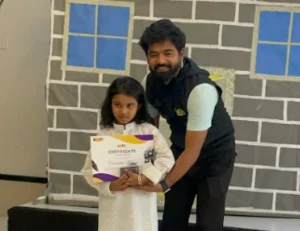Theatre Etiquette Guide: Tips for Students and Adults
Table of Contents
Introduction
Attending a theatre performance is not just about enjoying the show; it’s also about respecting the art form and the experience of fellow audience members. Theatre etiquette ensures that everyone can fully immerse themselves in the performance without distractions. Whether you’re a first-time attendee or a seasoned theatre-goer, understanding and practicing proper theatre etiquette is essential. Join us as we explore the nuances of theatre etiquette, from arrival to curtain call, and discover how to make the most of your theatre-going experience at Theatrica and beyond.
1. Arriving at the Theatre
Arriving at the theatre on time is crucial to avoid disruptions once the performance begins. Allow ample time for parking, ticket collection, and finding your seat. In school activities ideas for primary school, teachers can educate students about the importance of punctuality and respectful behavior in a theatre setting, setting a positive example for future theatre experiences.
2. Seating and Seating Etiquette
Once inside the theatre, locate your seat quietly and efficiently. Follow usher instructions to avoid confusion and ensure a smooth seating process. In kids activities near me, parents can teach children to sit still and refrain from kicking seats or making unnecessary noise during the performance, fostering respect for fellow audience members and performers alike.
3. Silence and Electronic Devices
Before the performance begins, silence or turn off all electronic devices, including cell phones, smartwatches, and tablets. In after school activities for kids, instructors can emphasize the importance of maintaining focus and minimizing distractions during the show, creating a conducive environment for immersion and appreciation of the performance.
4. Respectful Behavior During the Performance
During the performance, maintain silence and refrain from talking, whispering, or rustling programs. Avoid unwrapping candies or snacks that may create noise. In nursery kids activities, educators can introduce young children to the concept of attentive listening and quiet observation during storytelling or puppetry performances, laying the foundation for respectful theatre behavior.
5. Applause and Response
Applause is a gesture of appreciation for performers at the end of a scene or performance. Hold applause until the appropriate moment, typically signaled by the conclusion of a song, act, or entire performance. Encourage students in summer camp Pune to express their enthusiasm and appreciation through applause, contributing to a positive and supportive atmosphere for performers and fellow audience members.
6. Intermission Etiquette
During intermission, remain in your seat until the lights come up and the performance is set to resume. Use the restroom or visit concessions quickly to avoid long lines or delays. In kids classes near me, instructors can teach students about the significance of intermission as a break for both audience members and performers, promoting consideration and patience in a shared theatre space.
7. Exit Etiquette
If you must leave during the performance, do so discreetly and quietly to minimize disruptions. In school activities, educators can model respectful exit behavior by guiding students to exit during natural breaks or transitions in the performance, demonstrating consideration for both performers and fellow audience members.
8. Engaging with Theatre Personnel
Be courteous and respectful when interacting with theatre personnel, including ushers, box office staff, and concession vendors. In after school activities for kids, instructors can encourage students to express gratitude to theatre staff for their assistance and hospitality, fostering positive relationships and reinforcing the importance of kindness and appreciation.
9. Reflecting on the Experience
After the performance, take a moment to reflect on the experience and discuss highlights with friends or family. Encourage students in nursery kids activities to share their thoughts and emotions about the performance, promoting critical thinking and artistic appreciation.
Conclusion
By adhering to theatre etiquette, audience members contribute to a positive and enjoyable experience for everyone involved in the production. At Theatrica, we value the importance of respectful behavior and appreciation for the performing arts. Whether attending summer camp in Pune or participating in kids activities near me, practicing theatre etiquette enhances the cultural experience and enriches our connection to the theatrical community.
Recent Blogs

Summer Camp pune 2024, Theatrica’s Theatre Camp at GK Gurukul School
Theatrica is proud to have organized an summer camp in pune , offering a opportunity for children to dive into the world of theatre

Discover the Benefits of Theatre Programs for Kids in Pune
Theatre programs have been recognized as a powerful tool for personal development, offering benefits that extend beyond the stage.

The Power of Theatre Education and Fun Activities in Pune for kids
Theatre education can build confidence in kids, and provide practical school activities ideas for nursery kids activities, and more.

